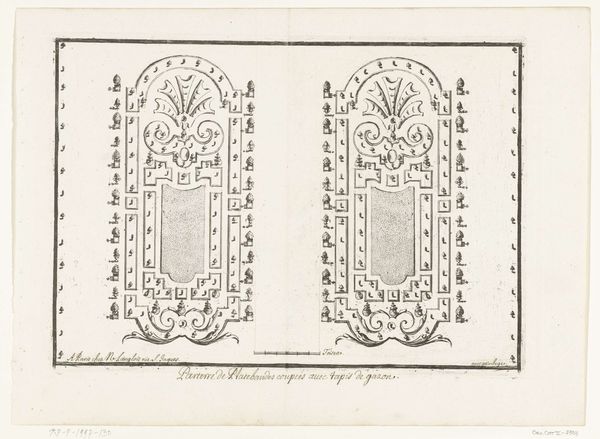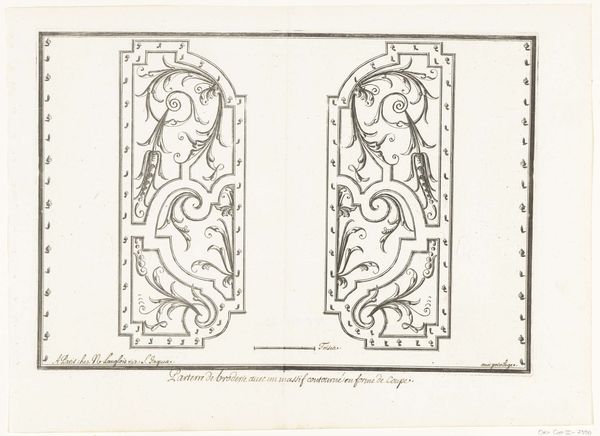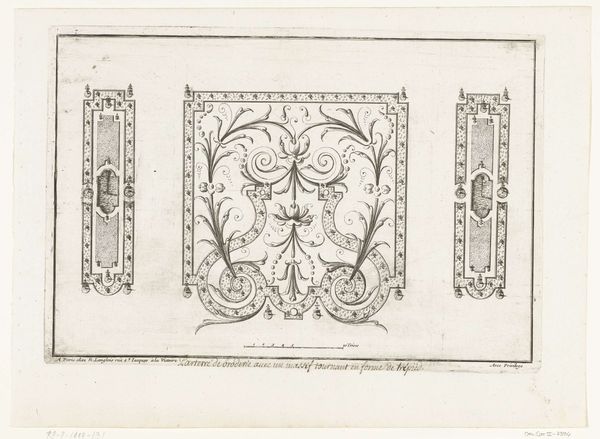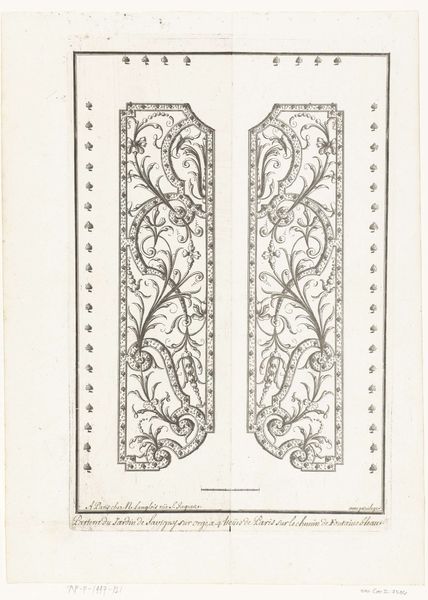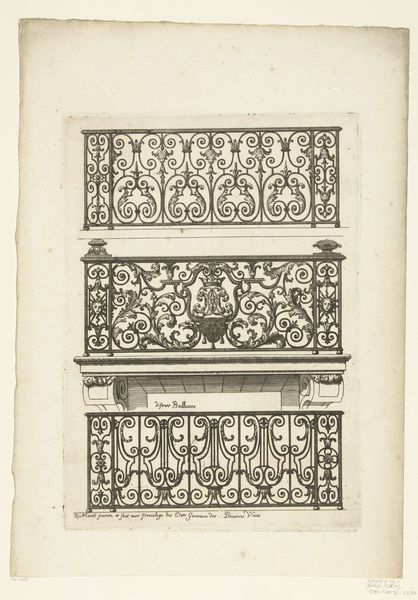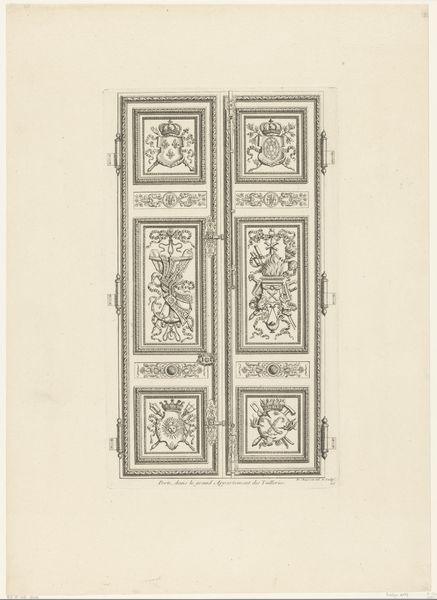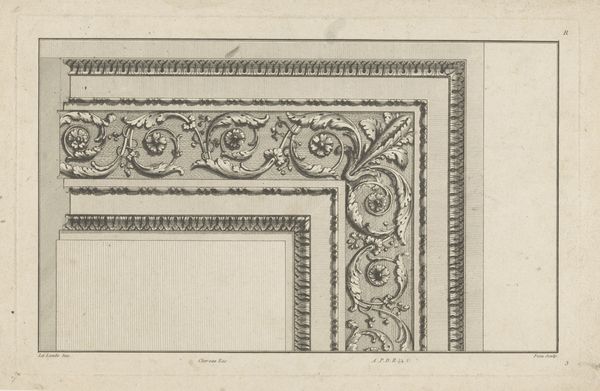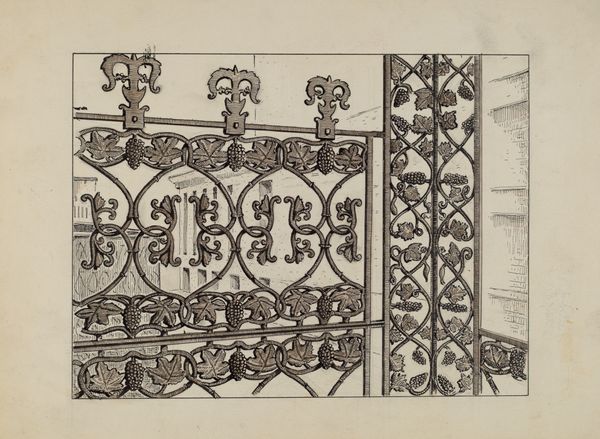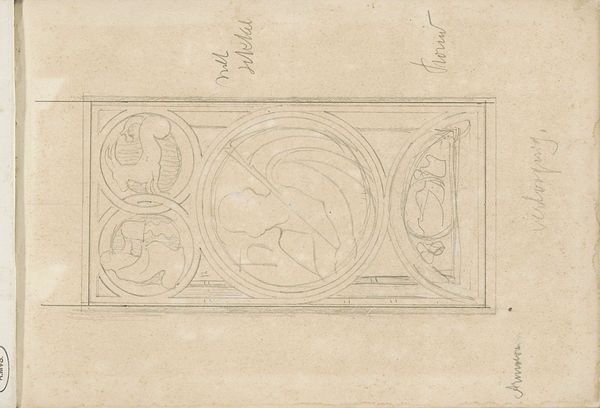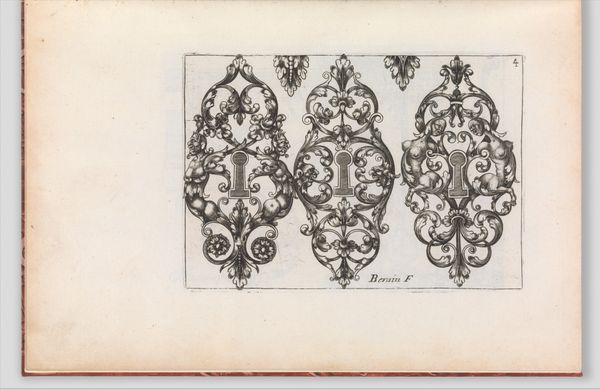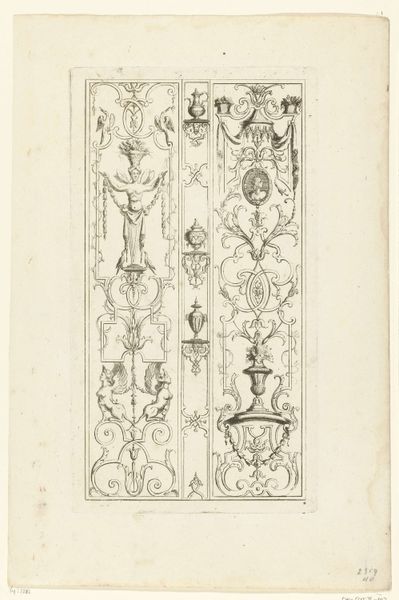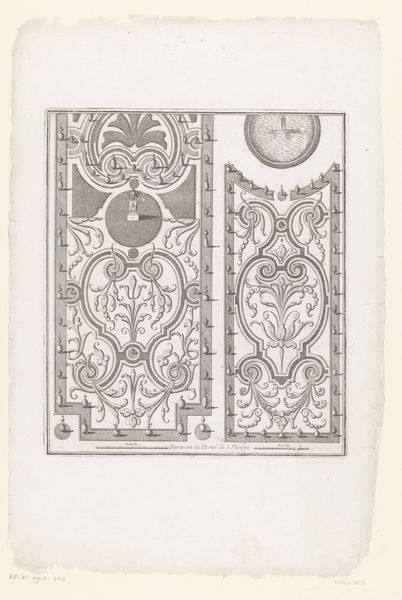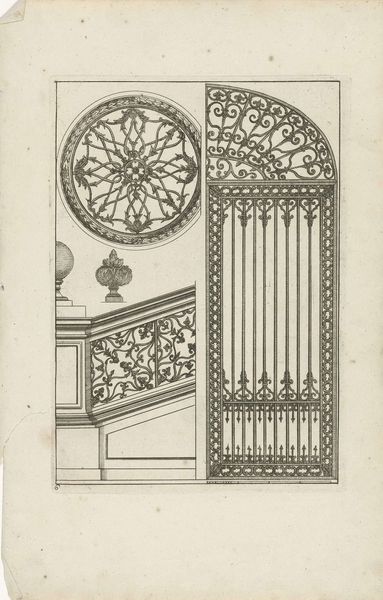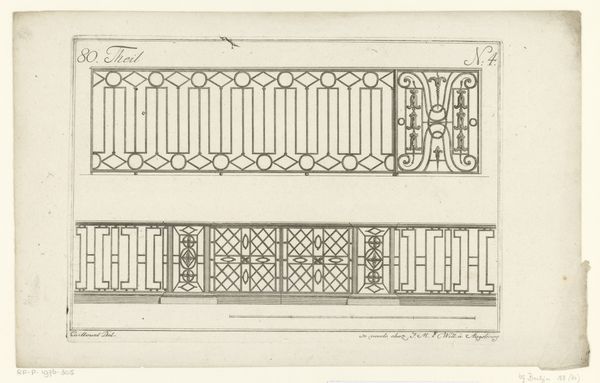
drawing, paper, ink
#
drawing
#
baroque
#
pen sketch
#
landscape
#
paper
#
ink
#
geometric
#
pen-ink sketch
#
line
#
pen work
Dimensions: height 220 mm, width 330 mm
Copyright: Rijks Museum: Open Domain
Editor: Here we have “Parterre met broderiemotieven voor korte tuin,” a pen and ink drawing on paper by André Le Nôtre, dating from around 1670 to 1680. It reminds me of blueprints or architectural drawings. What’s your take on this design? Curator: This drawing offers insight into the intersection of power, design, and the natural world during the Baroque era. Le Nôtre was instrumental in shaping the image of Louis XIV's France through landscape architecture, specifically gardens like Versailles. This “Parterre…” embodies absolute control of nature, reflecting the king’s absolute authority. What strikes you about the formal elements? Editor: The geometric patterns and symmetry, definitely. It seems so different from the natural randomness of gardens I see today. Curator: Exactly! The meticulous embroidery-like patterns symbolize the domestication and control of nature. Reflect on the implications of manipulating nature in this manner. What message does this send, socially and politically? Editor: That's a fascinating way to look at it – not just design, but also a declaration of dominance over nature itself, reflecting the power dynamics of the era. So, these gardens became stages for displays of authority? Curator: Precisely. Court life revolved around carefully choreographed events in spaces like these, solidifying the King’s image as powerful and refined. It was about visually impressing subjects and foreign dignitaries alike. A controlled aesthetic mirrored a controlled society. What do you make of that? Editor: I never considered gardens as propaganda before! It's really opened my eyes to the political intentions behind artistic choices, even seemingly "natural" ones. Curator: It's all about seeing art as a reflection of, and contributor to, social structures and power relations.
Comments
No comments
Be the first to comment and join the conversation on the ultimate creative platform.
